The story of how Paul Waner tallied his 3,000th hit is now just a footnote in baseball history. It’s also a story worth telling.
Before Waner collected his landmark knock, just six inner-circle Cooperstown men reached the milestone. In chronological order the 3,000-hit club included Cap Anson (1897), Honus Wagner (1914), Nap Lajoie (1914), Ty Cobb (1921), Tris Speaker (1925), and Eddie Collins (1925).
Waner neared the mark in his 16th season in 1942. In the second game of a doubleheader on June 17th that year Waner’s first-inning single pushed his total to 2,999. After a 3rd-inning fly out, Waner came up again in the 5th.
That’s when something special happened.
With one out and Braves rookie Tommy Holmes on first base, Waner hit a sharp grounder to the second-base side of shortstop Eddie Joost. The Reds infielder got his glove on the ball but did not make the play. Jerry Moore, the official scorer ruled it a hit.
It was a moment most men would cherish. Not Paul Waner. Big Poison didn’t want a scoring decision – even a correct one – to give him hit #3,000.
Waner waved angrily to the press box, demanding that the call be changed to an error. Eventually the scorer relented; Waner would have to wait to collect #3,000.
After an off day for Boston, Waner and the Braves faced off against Rip Sewell and the Pittsburgh Pirates. In the top of the 5th Waner laced an RBI single to center and got what he wanted – a clean 3,000th hit.
Baseball waited more than a decade and a half before Stan Musial followed Waner as the 8th member of the 3,000-hit club. Since then, other baseball batsmen have tallied the magic number. Of them all, only Paul Waner refused the moment and demanded to do it on his terms.
In the collection is this government postcard signed by Waner and postmarked 7 years after he recorded his big hit.
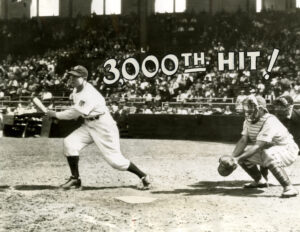
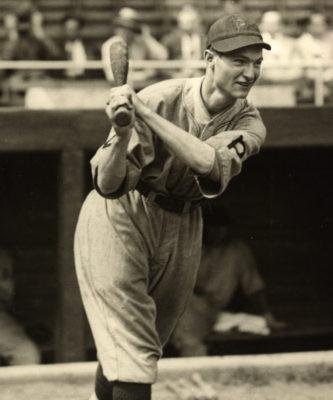
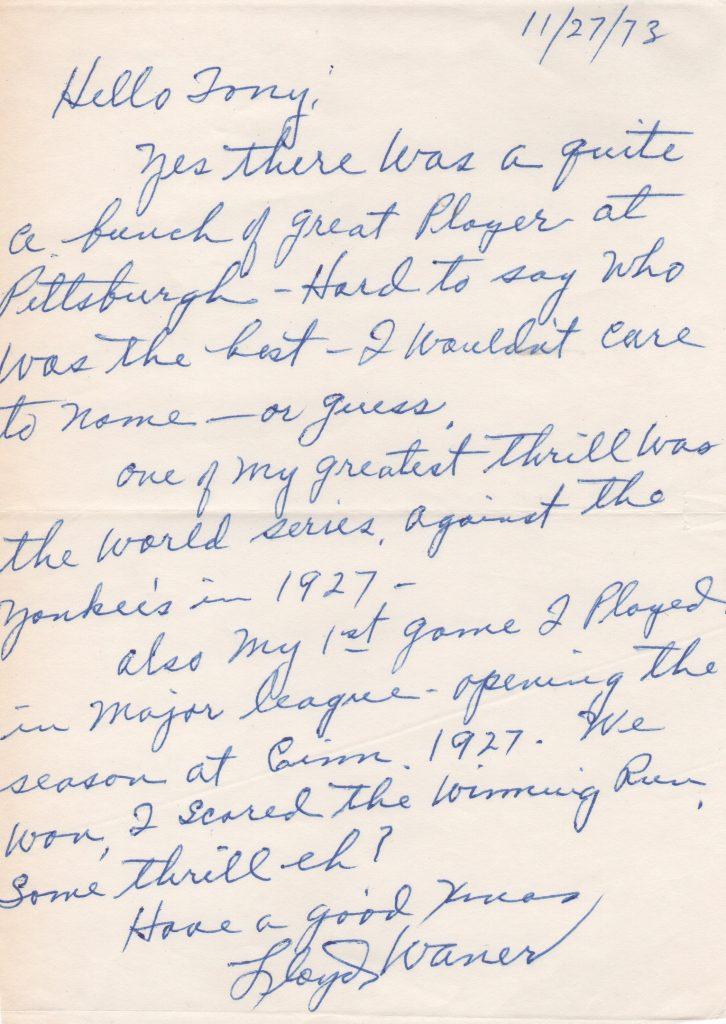
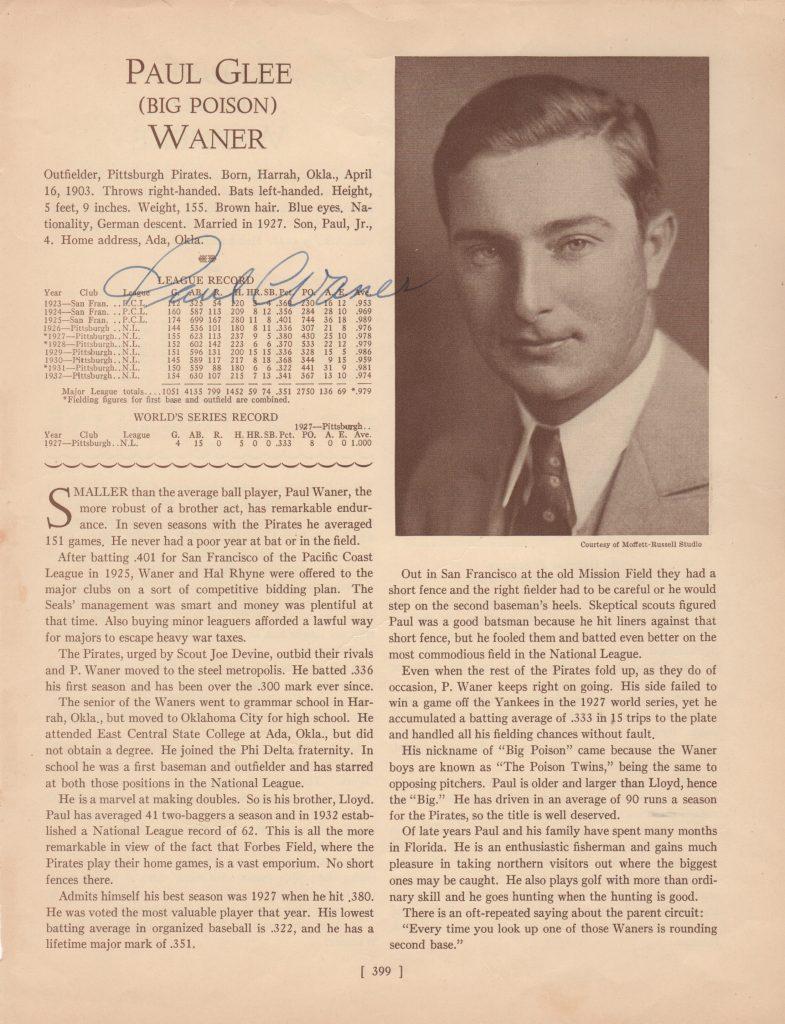
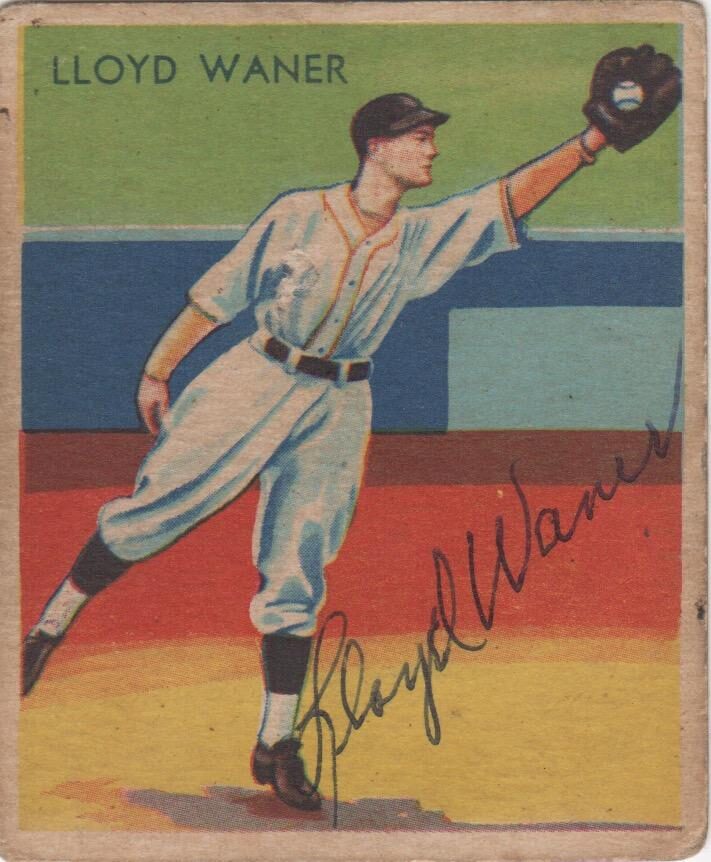
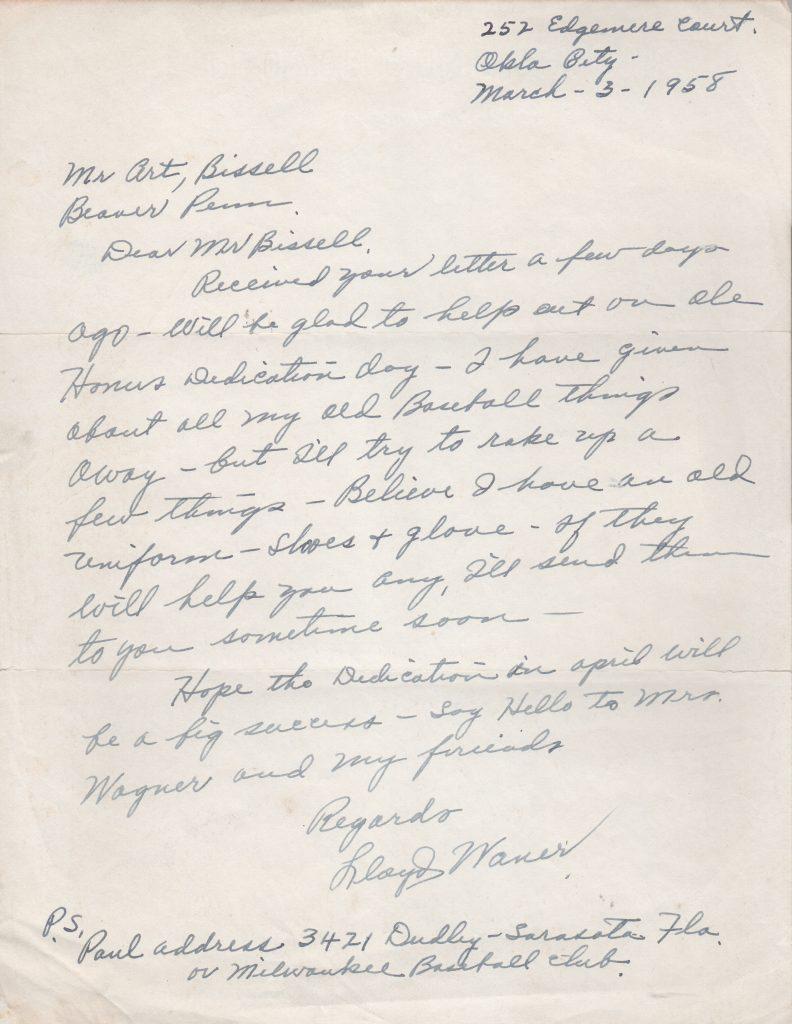
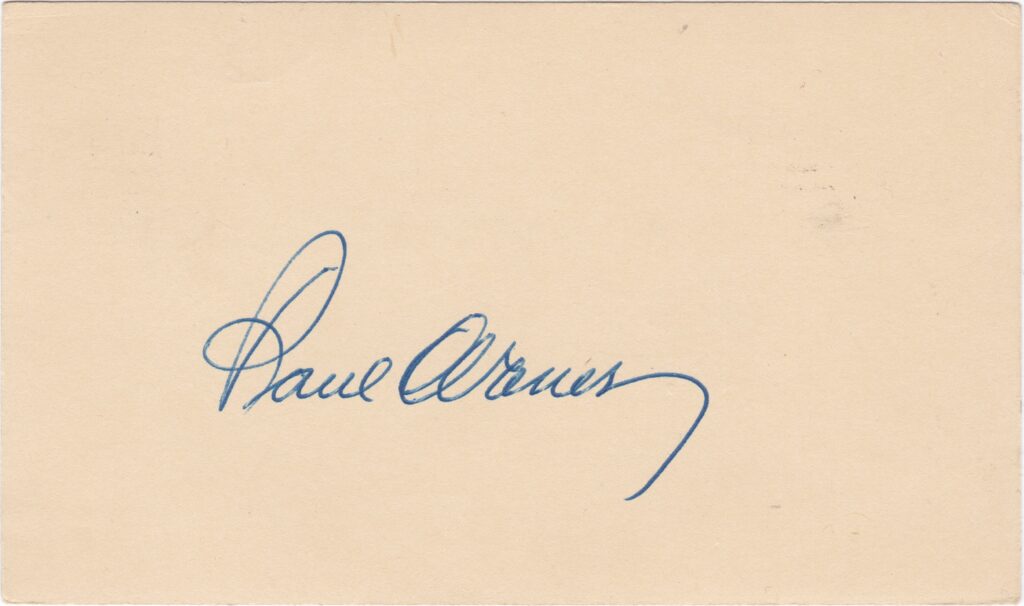
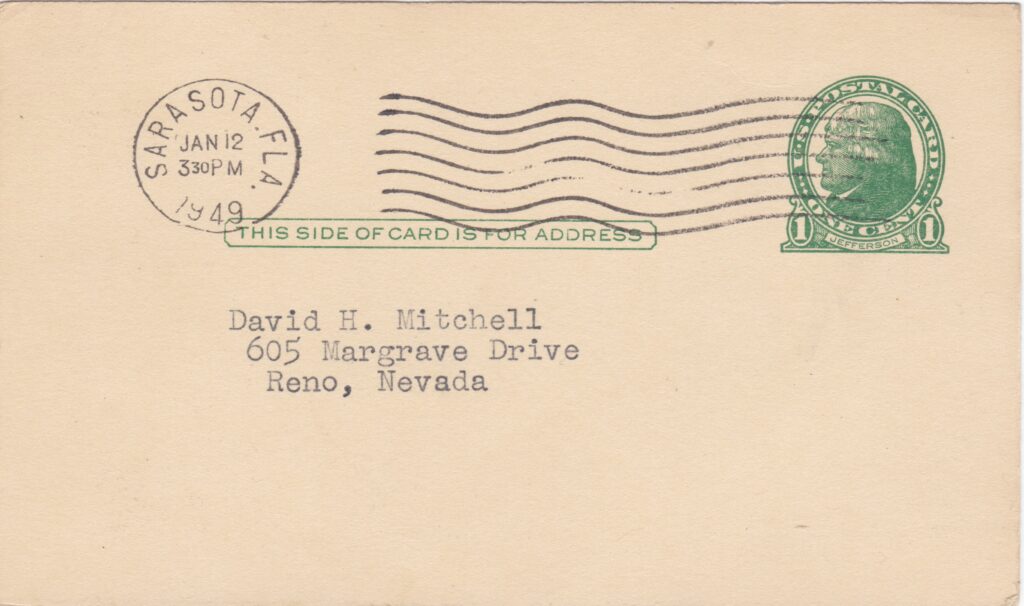
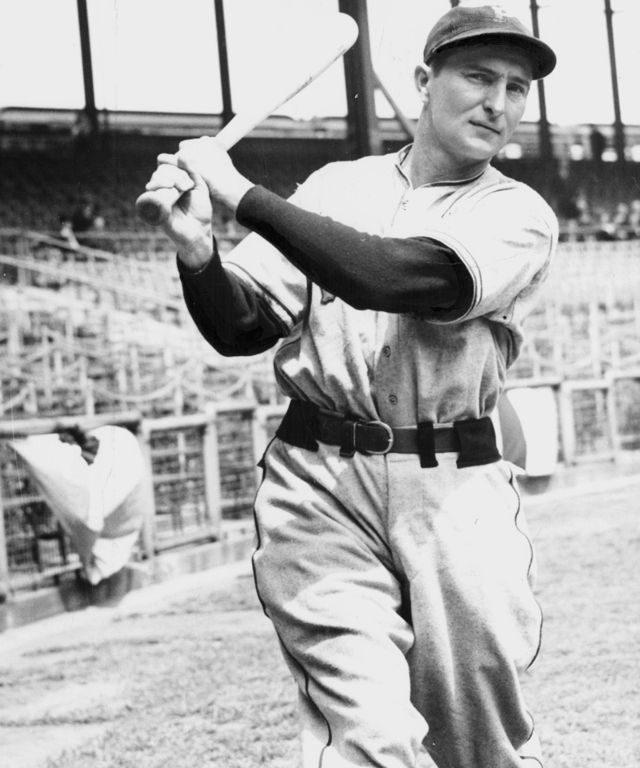
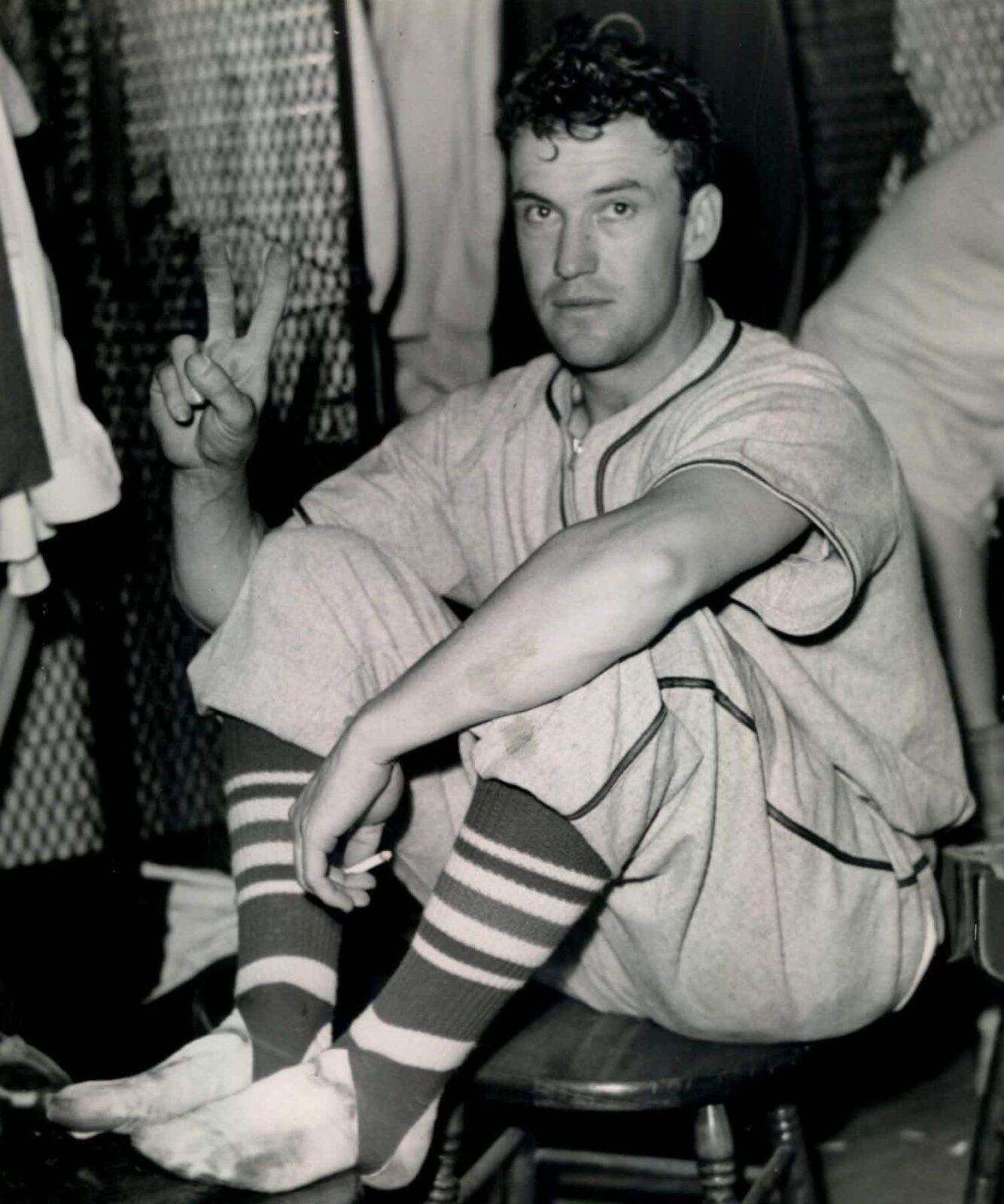
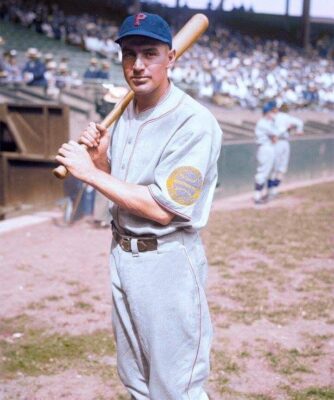
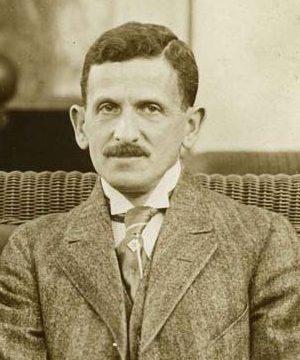
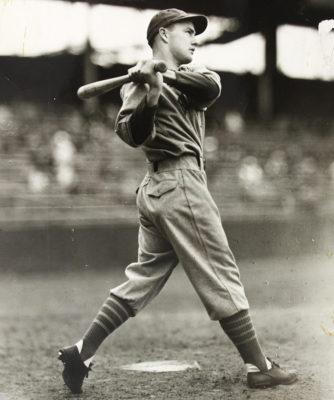
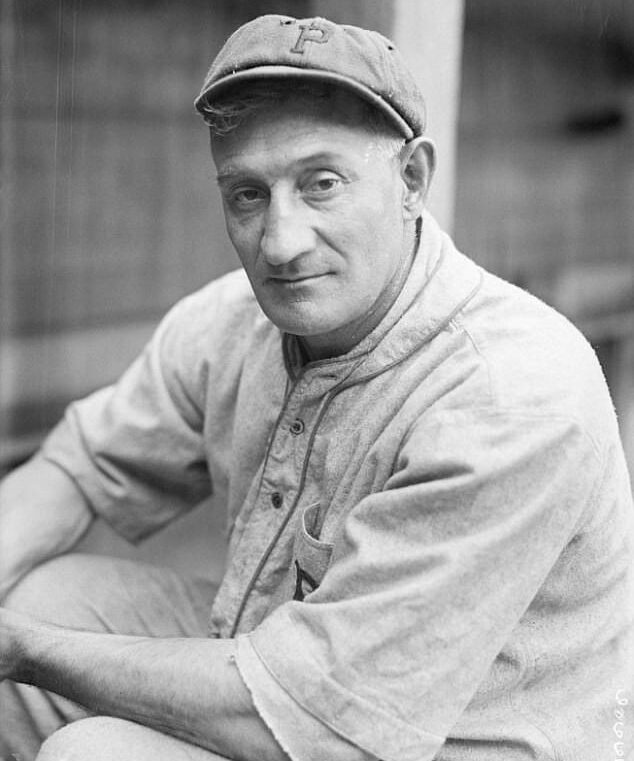
Very interesting story these guys were before my time I grew up idolizing Ted Williams and think about what his numbers would have been if not for his five years in the service as in 1942 he led both leagues in every major hitting category then missing 1943, 44 and 45. Those three years would have been spectacular.